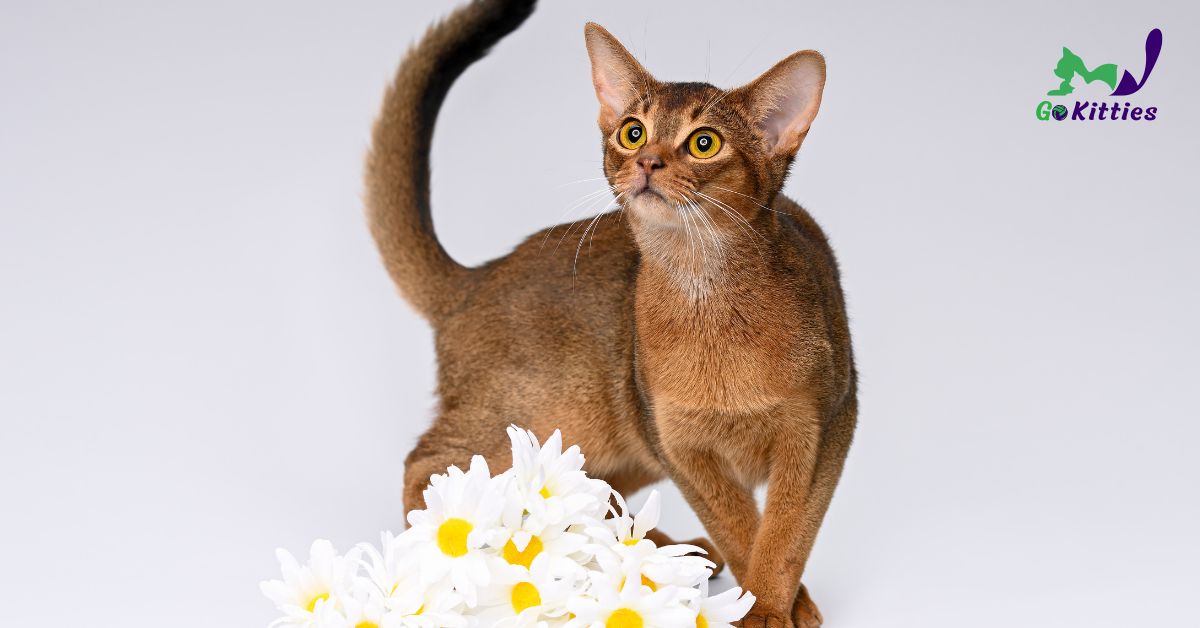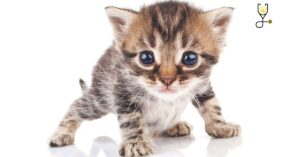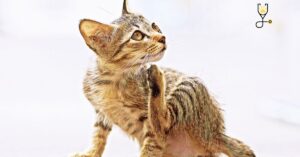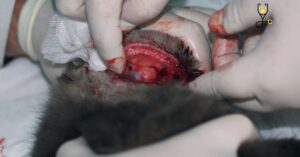If you’re looking for a unique and beautiful cat breed, the Abyssinian is definitely the one for you! With their elegant features and charming personalities, Abyssinians make wonderful pets. But before you adopt or buy an Abyssinian, it’s important to learn about their health problems, care needs, and feeding requirements. This breed overview will tell you everything you need to know about owning an Abyssinian cat.
History And Origin Of Abyssinian Cat
The Abyssinian is one of the oldest cat breeds in the world, and its history is shrouded in mystery. Some believe that they are descendants of the sacred cats of Ancient Egypt, while others claim they come from Ethiopia or Somalia. Regardless of their exact origins, it’s clear that the Abyssinian has been around for centuries. In 1868, a British soldier named Viscount Robert Clive brought an Abyssinian cat home from his travels in Ethiopia. This cat, named Zula, is believed to be the first Abyssinian to arrive in Britain. She quickly became a celebrity, and her offspring were soon being exported all over Europe. The Abyssinian eventually made its way to America in the early 1900s, and the breed quickly gained popularity. Today, the Abyssinian is one of the most popular cat breeds in the world. They are still relatively rare, but their popularity is steadily increasing. If you’re looking for a unique and beautiful cat, the Abyssinian is definitely the one for you!
Breed Overview
Temperament: Active, curious, and playful
Height: 9-14 inches
Weight: 6-12 pounds
Coat: Short and dense
Color: Ruddy, sorrel, blue, or fawn
Life expectancy: 9-15 years
Eye color: Gold or green
Health Problems Of Abyssinian Cat Breed

1. Pyruvate Kinase Deficiency: Abyssinians are the only cat breed known to be affected by pyruvate kinase deficiency, a potentially fatal blood disorder. This condition prevents the body from producing enough pyruvate kinase, an enzyme that is essential for red blood cells to function properly. Symptoms of this condition include weakness, lethargy, and anemia. If your Abyssinian shows any of these symptoms, it’s important to take them to the vet immediately. There is no cure for this condition, but treatment can help extend your cat’s life.
2. Congenital Kidney Disease: Some Abyssinians are born with congenital kidney disease, a condition that causes the kidneys to malfunction.
Symptoms of this condition include increased thirst, weight loss, and lethargy. If your Abyssinian shows any of these symptoms, it’s important to take them to the vet immediately. There is no cure for this condition, but treatment can help extend your cat’s life.
3. Respiratory Problems: Abyssinians are prone to respiratory problems such as asthma and allergies. If your cat shows any signs of difficulty breathing, it’s important to take them to the vet immediately. There is no cure for these conditions, but treatment can help manage the symptoms and make your cat more comfortable.
4. Heart Disease: Some Abyssinians are born with heart defects that can lead to heart disease. If your Abyssinian shows any signs of heart trouble, it’s important to take them to the vet immediately. There is no cure for this condition, but treatment can help extend your cat’s life.
5. Gastrointestinal Problems: Abyssinians are prone to gastrointestinal problems such as intestinal blockages and inflammatory bowel disease. If your cat shows any signs of digestive trouble, it’s important to take them to the vet immediately. There is no cure for these conditions, but treatment can help manage the symptoms and make your cat more comfortable.
6. Cancer: Unfortunately, like all cats, Abyssinians are at risk for cancer. If your cat shows any signs of illness, it’s important to take them to the vet immediately. Early detection is key to the successful treatment of this disease.
Feeding Tips For Abyssinian Cat
- A balanced diet is essential for an Abyssinian cat’s health.
- Feed your cat a high-quality diet that is appropriate for their age and activity level.
- Avoid giving your cat table scraps or processed foods.
- Make sure your cat has access to clean, fresh water at all times.

Caring For An Abyssinian Cat
-Brushing: Abyssinians are known for their dense, short coats. Brushing your cat on a weekly basis will help to remove any dead hair and keep its coat looking its best.
-Nail trimming: Trim your Abyssinian’s nails every two weeks or so to prevent them from getting too long.
-Teeth cleaning: Clean your Abyssinian’s teeth on a weekly basis to prevent gum disease and tooth decay.
-Ear cleaning: Clean your Abyssinian’s ears every week to prevent infection.
-Eye cleaning: Clean your Abyssinian’s eyes every day to prevent infection.
Grooming an Abyssinian cat is relatively easy, but it’s important to be gentle and take your time. These cats don’t like to be rushed, and they may become agitated if you try to groom them too quickly.

Play And Joy-The Abyssinian Cat
-Toys: All cats need toys to keep them entertained, but Abyssinians are especially active and playful. Be sure to provide your cat with plenty of toys to keep them occupied.
-Exercise: Abyssinians love to play and run around, so be sure to provide them with plenty of exercises. A good game of fetch or a round of laser tag is sure to get their heart racing.
-cuddles: Despite their active nature, Abyssinians also love cuddles and attention from their humans. Be sure to give your cat plenty of love and affection.
-scratching posts: Be sure to provide your Abyssinian with plenty of scratching posts to help keep their claws healthy. The Abyssinian is an active, playful cat that loves to run and jump. They are also very affectionate and love to cuddle with their humans.
Where To Adopt And Purchase An Abyssinian Cat
- Breeder: If you are interested in purchasing an Abyssinian cat, be sure to do your research and purchase from a reputable breeder.
- Rescue: There are many Abyssinian cats in need of homes, so be sure to check your local animal shelter or rescue organization.
- Adoption: The best way to find an Abyssinian cat is to Adopt, not Shop! Be sure to check your local animal shelter or rescue organization for adoptable cats.

Best Foods For Abyssinian Cats
A balanced diet is essential for an Abyssinian cat’s health. Feed your cat a high-quality diet that is appropriate for their age and activity level. Avoid giving your cat table scraps or processed foods. Make sure your cat has access to clean, fresh water at all times.
Here are some of the best food options for Abyssinian cats:
-Tuna: Tuna is a great source of protein for cats and it’s also very low in fat. Be sure to choose tuna packed in water, not oil.
-Chicken: Chicken is another great source of protein for cats. It’s also relatively low in fat and easy to digest.
-Turkey: Turkey is a great alternative to chicken and it’s also packed with protein and low in fat.
-Salmon: Salmon is a great source of omega-3 fatty acids, which are essential for a healthy coat and skin. It’s also a good source of protein and low in fat.
-Eggs: Eggs are a great source of protein and other nutrients. They’re also relatively easy to digest.
-Veggies: Veggies like carrots, broccoli, and spinach are packed with vitamins and minerals. Be sure to chop them up into small pieces so your cat can easily eat them.
Conclusion
So, here we have covered what an Abyssinian cat is, some of its best physical characteristics, as well some tips on how to take care of them. We have also included some of the best food options for Abyssinian cats. We hope you have found this guide helpful and that it has given you some useful information on these wonderful cats. Thanks for reading!
- Leave a comment below if you have any questions or would like to share your own experiences with an Abyssinian cat.
Frequently Asked Questions
1. What is an Abyssinian cat?
An Abyssinian cat is a medium-sized domestic cat with a short, dense coat. These cats are known for their active and playful nature, as well as their affectionate personalities.
2. What are some of the best food options for Abyssinian cats?
Some of the best food options for Abyssinian cats include tuna, chicken, turkey, salmon, eggs, and veggies.
3. What are some tips on how to take care of an Abyssinian cat?
Some tips on how to take care of an Abyssinian cat include providing them with plenty of toys, exercise, and affection. You should also make sure they have access to clean, fresh water at all times. Additionally, you should feed them a high-quality diet that is appropriate for their age and activity level.
4. Where can I purchase or adopt an Abyssinian cat?
You can purchase or adopt an Abyssinian cat from a breeder, animal shelter, or rescue organization.
5. What is the average lifespan of an Abyssinian cat?
The average lifespan of an Abyssinian cat is around 10-15 years. However, some cats have been known to live up to 20 years or more.







